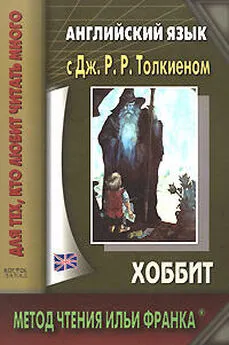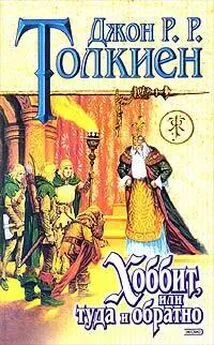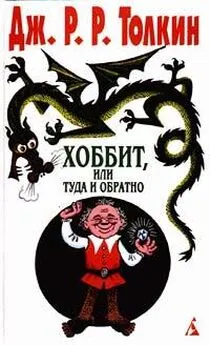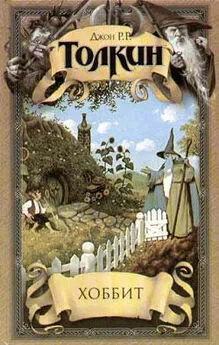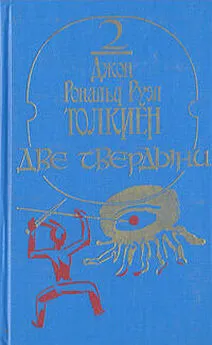Джон Толкиен - Английский язык с Дж. Р. Р. Толкиеном. Хоббит
- Название:Английский язык с Дж. Р. Р. Толкиеном. Хоббит
- Автор:
- Жанр:
- Издательство:АСТ, Восток-Запад
- Год:2008
- Город:Москва
- ISBN:978-5-17-048593-2, 978-5-478-00597-9
- Рейтинг:
- Избранное:Добавить в избранное
-
Отзывы:
-
Ваша оценка:
Джон Толкиен - Английский язык с Дж. Р. Р. Толкиеном. Хоббит краткое содержание
В книге предлагается произведение на английском языке Джона Р. Р. Толкиена «Хоббит», адаптированное (без упрощения текста оригинала) по методу Ильи Франка. Уникальность метода заключается в том, что запоминание слов и выражений происходит за счет их повторяемости, без заучивания и необходимости использовать словарь.
Пособие способствует эффективному освоению языка, может служить дополнением к учебной программе.
Предназначено для студентов, для изучающих английский язык самостоятельно, а также для всех интересующихся английской культурой.
Пособие подготовила Ольга Ламонова.
Английский язык с Дж. Р. Р. Толкиеном. Хоббит - читать онлайн бесплатно полную версию (весь текст целиком)
Интервал:
Закладка:
pine cone [ˈpaɪnkǝʋn] immediately [ɪˈmi: dɪǝtlɪ] coloured [ˈkʌlǝd]
All the same he was not going to let them have it all their own way, though he could not do very much stuck up in a tall tree with wolves all round on the ground below. He gathered the huge pinecones from the branches of his tree. Then he set one alight with bright blue fire, and threw it whizzing down among the circle of the wolves. It struck one on the back, and immediately his shaggy coat caught fire, and he was leaping to and fro yelping horribly. Then another came and another, one in blue flames, one in red, another in green. They burst on the ground in the middle of the circle and went off in coloured sparks and smoke. A specially large one hit the chief wolf on the nose, and he leaped in the air ten feet, and then rushed round and round the circle biting and snapping even at the other wolves in his anger and fright.
The dwarves and Bilbo shouted and cheered (гномы и Бильбо закричали и обрадовались). The rage of the wolves was terrible to see (на ярость волков было ужасно смотреть), and the commotion they made filled all the forest (и то беспокойство, что они создали, наполнило весь лес). Wolves are afraid of fire (волки боятся огня) at all times (в любое время), but this was a most horrible and uncanny fire (но это был самый ужасный и жуткий огонь). If a spark got in their coats (если искра попадала на их шкуры) it stuck (она впивалась /в нее/) and burned into them (и жгла их), and unless they rolled over quick (и если им не удавалось быстро перекатиться) they were soon all in flames (то вскоре они полностью были в пламени). Very soon (очень скоро) all about the glade (по всей поляне) wolves were rolling over and over (волки перекатывались и перекатывались) to put out the sparks (чтобы избавиться от искр) on their backs (на своих спинах), while those that were burning (пока те, что горели) were running about (бегали бесцельно вокруг) howling and setting others alight (завывая и поджигая других), till their own friends chased them away (до тех самых пор, пока их собственные друзья не выгоняли их; to chase — гнаться, преследовать; охотиться; выгонять ) and they fled off down the slopes (и они не спасались бегством вниз по склонам; to flee — убегать, спасаться бегством ) crying and yammering (вопя и стеная) and looking for water (и разыскивая воду).
“What’s all this uproar in the forest tonight (что означает весь этот гвалт в лесу этой ночью)?” said the Lord of the Eagles (сказал Повелитель Орлов). He was sitting, black in the moonlight (он сидел, черный в лунном свете), on the top of a lonely pinnacle of rock (на вершине одинокой остроконечной скалы) at the eastern edge of the mountains (на восточном краю гор). “I hear wolves’ voices (я слышу голоса волков)! Are the goblins at mischief in the woods (что, гоблины безобразничают в лесах)?”
cheer [tʃɪǝ] commotion [kǝˈmǝʋʃ (ǝ) n] yammer [ˈjæmǝ] mischief [ˈmɪstʃɪf]
The dwarves and Bilbo shouted and cheered. The rage of the wolves was terrible to see, and the commotion they made filled all the forest. Wolves are afraid of fire at all times, but this was a most horrible and uncanny fire. If a spark got in their coats it stuck and burned into them, and unless they rolled over quick they were soon all in flames. Very soon all about the glade wolves were rolling over and over to put out the sparks on their backs, while those that were burning were running about howling and setting others alight, till their own friends chased them away and they fled off down the slopes crying and yammering and looking for water.
“What’s all this uproar in the forest tonight?” said the Lord of the Eagles. He was sitting, black in the moonlight, on the top of a lonely pinnacle of rock at the eastern edge of the mountains. “I hear wolves’ voices! Are the goblins at mischief in the woods?”
He swept up into the air (он устремился вверх, в небо: «воздух»), and immediately two of his guards (и немедленно же двое его стражников) from the rocks at either hand (со скал, с каждой стороны) leaped up to follow him (подпрыгнули вверх, чтобы последовать за ним). They circled up in the sky (они кружили в небе) and looked down upon the ring of the Wargs (и смотрели вниз, на кольцо Варгов), a tiny spot far far below (крошечную точку далеко, далеко внизу). But eagles have keen eyes (но у орлов очень острое зрение) and can see small things (и они могут видеть маленькие предметы) at a great distance (с большого расстояния). The lord of the eagles of the Misty Mountains (у Властелина Орлов Мглистых Гор) had eyes that could look at the sun unblinking (были такие глаза, что он мог смотреть на солнце, не моргая; to blink — моргать ), and could see a rabbit moving on the ground (и мог увидеть зайца, двигающегося по земле) a mile below (с расстояния в милю /внизу/) even in the moonlight (даже при лунном свете). So though he could not see the people in the trees (поэтому, хотя он и не мог видеть людей на деревьях), he could make out the commotion among the wolves (он мог разобрать/разглядеть волнение среди волков) and see the tiny flashes of fire (и увидеть крошечные вспышки пламени), and hear the howling and yelping (и слышал вопли и завывания) come up faint from far beneath him (доносящиеся слабо откуда-то далеко под ним). Also he could see the glint of the moon (так же он мог видеть блеск луны) on goblin spears and helmets (на копьях и шлемах гоблинах), as long lines of the wicked folk crept down the hillsides (тогда как длинные цепочки злобных людишек ползли вниз по склонам холмов) from their gate (из своих ворот) and wound into the wood (и /извиваясь/ двигались в лес; to wind — наматывать (ся); обматывать (ся), обвивать (ся) ).
distance [ˈdɪst (ǝ) ns] unblinking [ʌnˈblɪŋkɪŋ] spear [spɪǝ] helmet [ˈhelmɪt]
He swept up into the air, and immediately two of his guards from the rocks at either hand leaped up to follow him. They circled up in the sky and looked down upon the ring of the Wargs, a tiny spot far far below. But eagles have keen eyes and can see small things at a great distance. The lord of the eagles of the Misty Mountains had eyes that could look at the sun unblinking, and could see a rabbit moving on the ground a mile below even in the moonlight. So though he could not see the people in the trees, he could make out the commotion among the wolves and see the tiny flashes of fire, and hear the howling and yelping come up faint from far beneath him. Also he could see the glint of the moon on goblin spears and helmets, as long lines of the wicked folk crept down the hillsides from their gate and wound into the wood.
Eagles are not kindly birds (орлы не добренькие птицы). Some are cowardly and cruel (некоторые из них — трусливые и жестокие). But the ancient race (но древний род /орлов/) of the northern mountains (из северных гор) were the greatest of all birds (был величайшим из всех /родов/ птиц); they were proud (они были гордыми) and strong (и сильными) and noble-hearted (и благородными: «с благородным сердцем»). They did not love goblins (им не нравились гоблины), or fear them (и они не боялись их). When they took any notice of them at all (когда они вообще замечали их) (which was seldom (что случалось редко), for they did not eat such creatures (потому как они не едят таких существ)), they swooped on them (они внезапно налетали на них) and drove them shrieking back to their caves (и гнали их с криками назад, к их пещерам), and stopped whatever wickedness they were doing (и пресекали любые злодеяния, которые те делали; wicked — злой; wickedness — злая выходка, злой поступок ). The goblins hated the eagles (гоблины ненавидели орлов) and feared them (и боялись их), but could not reach their lofty seats (но не могли добраться до их высоких гнезд; lofty — очень высокий /не о людях/: lofty mountains — высокие горы; seat — сиденье; место ), or drive them from the mountains (или изгнать их из гор).
cowardly [ˈkaʋǝdlɪ] creature [ˈkri: tʃǝ] hate [heɪt] fear [fɪǝ]
Eagles are not kindly birds. Some are cowardly and cruel. But the ancient race of the northern mountains were the greatest of all birds; they were proud and strong and noble-hearted. They did not love goblins, or fear them. When they took any notice of them at all (which was seldom, for they did not eat such creatures), they swooped on them and drove them shrieking back to their caves, and stopped whatever wickedness they were doing. The goblins hated the eagles and feared them, but could not reach their lofty seats, or drive them from the mountains.
Tonight the Lord of the Eagles was filled with curiosity (сегодня ночью Повелитель Орлов был переполнен любопытством) to know what was afoot (и хотел знать, что же затевалось; afoot — в движении, в действии ); so he summoned many other eagles to him (и тогда он призвал много других орлов к себе), and they flew away from the mountains (и они слетели с гор; to fly (flew, flown) — летать ), and slowly circling ever round and round (и медленно кружась) they came down, down, down (они опускались вниз, вниз, вниз) towards the ring of the wolves (по направлению к кольцу волков) and the meeting-place of the goblins (и месту встречи с гоблинами).
A very good thing too (это тоже было очень хорошим делом)! Dreadful things had been going on down there (ужасные вещи свершались там внизу). The wolves that had caught fire (те волки, что загорелись) and fled into the forest (и убежали в лес) had set it alight in several places (подожгли его в нескольких местах). It was high summer (стояла середина лета; high summer — разгар лета: «высокое лето» ), and on this eastern side of the mountains (и на восточной стороне гор) there had been little rain for some time (некоторое время было мало дождей). Yellowing bracken (желтеющие папоротники), fallen branches (опавшие ветви), deep-piled pine-needles (высокие кучи сосновых иголок; deep — глубокий, широкий ), and here and there dead trees (здесь и там сухие деревья; dead — мертвый ), were soon in flames (вскоре были /объяты/ пламенем). All round the clearing of the Wargs (везде вокруг прогалины Варгов) fire was leaping (прыгал огонь).
Читать дальшеИнтервал:
Закладка:
